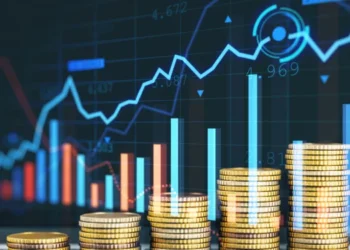The Country Director of the World Bank, Mr Pierre Frank Laporte has advised that the government follows a prudent approach to borrowing in order to keep debt levels from escalating.
He underscored that the country’s debt-to-GDP ratio which currently stands at 70.2 percent as of March 2021 is a worrying trend, thus placing the country at high risk of debt distress. However, this is a decline from debt-to-GDP ratio of 78 percent as at year-end 2020.
Indeed, this decline has occurred due to the fact that Ghana’s GDP growth in 2020 slowed down compared to rising debt levels.
The World Bank Country Director made these remarks during an engagement with the media, yesterday, June 21, 2021.
Emphasizing the manner of the approach to adopt, he indicated that this would require borrowing responsibly, at the right place, and at the right levels.
He explained further that the debt-to-GDP ratio, which is a measure of debt burden, will only reduce if Ghana accelerates its GDP growth.
“We look at it from a debt-to-GDP ratio. It’s a ratio. So, if you increase your denominator, then your [ratio will fall]. To the extent that Ghana can accelerate growth, it will help bring down the ratio and reduce the overall risk.”
Although a substantive measure invariably used across countries to measure debt burden, some analysts are of the view that the debt-to-GDP ratio measure is a temporal measure. And that the ultimate measure of debt burden is the interest payment as a share of revenue.
Other factors to consider
He also highlighted the need for a reduced fiscal deficit, indicating that the reason for borrowing is as a result of the widening fiscal deficit.
“But also, helping Ghana to curb that situation is by bringing down our deficit. Why do you borrow? You borrow because you don’t have enough revenue to make do. So when you don’t have enough revenue, the equivalent is your shortfall…
Pierre Laporte Country director, World Bank
“By raising your revenue base it allows you to reduce [your deficit]. Ghana’s revenue to GDP ratio at 12 percent is too low. Ghana can do better. And I think the Government recognizes that.
“Recently, there were some measures, of course nobody is happy when taxes are [imposed]. But, we believe also that without raising taxes further, by a more efficient collection of taxes, a better policy towards exemption, making exemptions a little bit more streamlined… will help Ghana.”
Pierre Laporte, Country Director, World Bank
He also hinted that all these notwithstanding, there is need to consider debt management, a mention, which he indicated the government was already working on.
The Bank expects Ghana to grow at 4.5 percent this year, and this is more forward looking compared to the 1.4 percent growth rate indicated in the World Bank’s Global Economic Prospect report. Again, this is closer to the government’s 5 percent growth forecast indicated in the 2021 budget. With the country growing at this pace, we should expect the debt-to-GDP ratio decline further, all other things being equal.
Before COVID-19, Ghana’s GDP growth was among the fastest in the world averaging 7 percent. But, during COVID-19 last year, the country grew at 0.4 percent. Therefore, Ghana’s economy is gradually taking shape.
READ ALSO: World Bank satisfied with govt’s utilization of COVID-19 support funding























